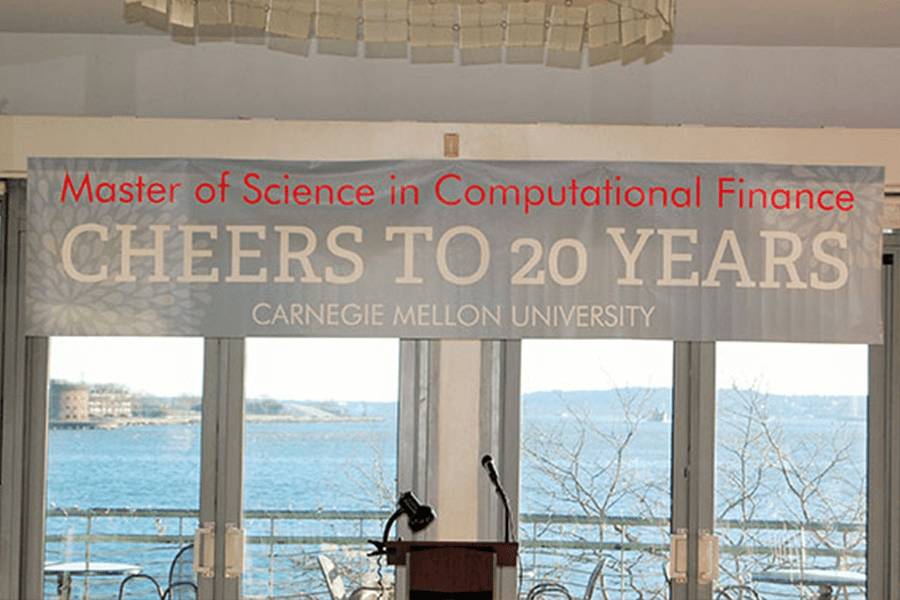Masters of Science in Computational Finance Program Celebrates 20th Anniversary
Despite the increase in competing programs over the years, the MSCF program at Carnegie Mellon remains the top program. As the industry continues to evolve, the MSCF program continues to anticipate changes and enhance its offerings.
“In 1994, we were at the very frontier of applying mathematical and computational techniques to business problems in a specific domain,” said Srivastava. “Today, we can analyze idiosyncratic little pieces in enormous detail, and I think that fundamentally changes how you think about things. Facing data will become an important component of this program as students prepare for the next twenty years.”
On March 12, more than 100 alumni, faculty and staff from the Master of Science in Computational Finance (MSCF) program at Carnegie Mellon University gathered in New York City to celebrate the 20th anniversary of the program.
The celebration featured the original founders of the MSCF program: John Lehoczky, statistics professor; Steve Shreve, a professor at the Mellon College of Science; and Sanjay Srivastava, a former professor at the Tepper School of Business. Whether it was handwriting letters to recruit students, traversing New York City to secure employers or developing curriculum just hours before class, each founder told anecdotes of building the program from its first class of ten — to now, when the program has nearly 100 students.
“In the early 1990s, the time was ripe to introduce a degree in computational finance,” said Lehoczky. “Carnegie Mellon University was the perfect place to develop an educational program in quantitative finance with its tradition of collaboration and faculty dedication.”
Since the program’s inception in 1994, Carnegie Mellon’s MSCF program has pioneered and maintained its reputation as the top quantitative financial engineering program in the country, holding the highest positions in some of the nation’s most prestigious rankings. Over the years, the program has adapted its curriculum and recruited faculty to meet the evolving needs of the financial industry.
Throughout the evening, the reputation and success of the program was echoed amongst its strong alumni network. Alumni from across the globe — from New York City and Pittsburgh to Mexico and Luxembourg — reminisced about memorable experiences, inspirational faculty and the challenging curriculum.
“I’ll never forget Professor Seppi’s energy level after lecturing for more than three hours,” said Litao Liu, MSCF ’13. “That passion speaks volumes to the quality of the program and dedication of the faculty.”
From late-night study sessions and classmate camaraderie, to trading simulations and career services, each alumnus credited the MSCF program for equipping them with the essential skills and analytical mindset required for their careers in the financial services sector.
The respect and admiration between MSCF program graduates and faculty was mutual.
“When the program started, I was developing curriculum at 4 a.m.,” said Shreve. “My lecture notes soon became books, and those books are dedicated to the MSCF students who pushed me to excel.”
